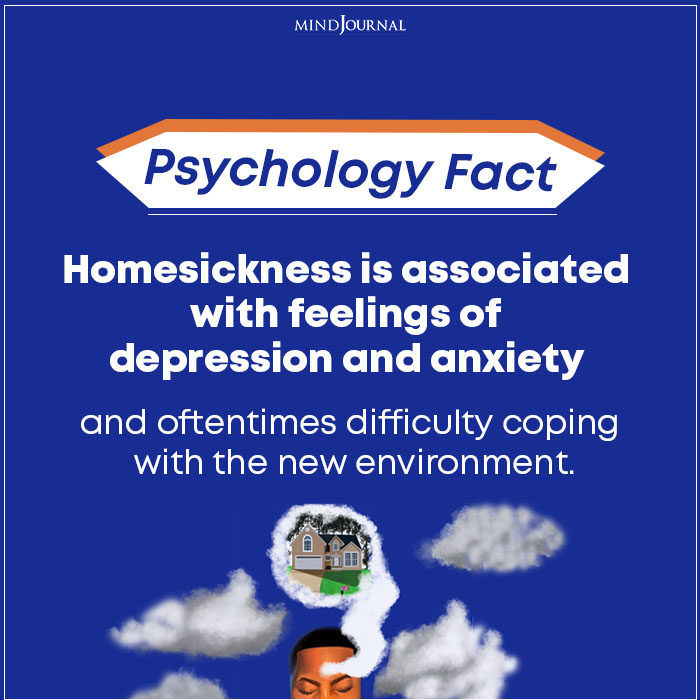Have you ever experienced that longing for home, that melancholic feeling that creeps in when you’re away from familiar surroundings? Homesickness is a common emotion that many of us have encountered at some point in our lives. But how do you cure homesickness?
Whether you’re a student studying abroad, a traveler exploring new horizons, or simply living away from home, homesickness can strike unexpectedly and leave you feeling vulnerable.
Let us explore the concept of homesickness, understanding what does homesickness feel like, how long does homesickness last, and most importantly, how to deal with homesickness.
What is Homesickness?
Homesickness is an emotional response triggered by being away from familiar surroundings, such as home, family, or one’s usual environment.
It is a complex mix of emotions that can vary from person to person. It often manifests as a deep longing for familiar faces, places, and routines. It’s a common experience, particularly among individuals adjusting to new environments or undergoing significant life changes.
Related: When No Place Feels Like Home: 3 Ways To Find Where You Belong

What Does Homesickness Feel Like?
The feeling of homesickness can be overwhelming and may include symptoms such as sadness, anxiety, irritability, difficulty sleeping, loss of appetite, and a general sense of unease.
Symptoms may also include feelings of longing or nostalgia for familiar people and places, accompanied by physical manifestations like fatigue or loss of appetite.
It’s important to acknowledge that homesickness is a natural response to being away from the familiar and the people we hold dear. Understanding the emotions associated with homesickness is the first step towards finding a cure.
How Long Does Homesickness Last?
The duration of homesickness can vary depending on the individual and the circumstances. For some, homesickness may be a fleeting sensation that disappears within a few days or weeks. However, for others, it can persist for a longer period.
Factors such as the distance from home, the level of social support, and the ability to adapt to new environments can influence the duration of homesickness. It’s crucial to remember that homesickness is a temporary state of mind that can be effectively managed and overcome with the right strategies.
How Do You Cure Homesickness: 9 Practical Ways to Overcome It
Struggling with homesickness? Here are some actionable tips and strategies to navigate this challenging emotional experience and find comfort in your new surroundings –
1. Acknowledge and Accept Your Feelings
The first step in overcoming homesickness is to acknowledge and accept your emotions. It’s completely normal to feel homesick, and there’s no shame in missing the comforts of home.
Recognize that homesickness is a sign that you value the connections and familiarity of your home environment, and it’s okay to experience these emotions.
Related: 5 Best Ways To Feng Shui Your Home For Positivity
2. Stay Connected with Loved Ones
One of the most effective ways to alleviate homesickness is by staying connected with your loved ones. In today’s digital age, distance is no longer a barrier to maintaining relationships. Make use of video calls, instant messaging, and social media platforms to keep in touch with family and friends.
Sharing your experiences, hearing familiar voices, and seeing familiar faces can provide a sense of comfort and belonging, bridging the gap between you and home.
3. Create a Sense of Home wherever You Are
While you may be physically away from home, there are ways to recreate a sense of familiarity and comfort in your current surroundings. Personalize your living space with items that hold sentimental value or remind you of home.

Surround yourself with photographs, mementos, or even scents that evoke positive memories. By infusing your new environment with elements from home, you can create a sanctuary that nurtures your emotional well-being. This is one of the best ways to overcome homesickness.
4. Establish a Routine
Establishing a routine can help create a sense of stability and familiarity, reducing the impact of homesickness. Set a daily schedule that includes activities you enjoy and find meaningful.
Engage in hobbies, exercise, or explore your new surroundings. Having a routine provides structure and purpose, distracting you from dwelling on feelings of homesickness. This is the answer to “how do you cure homesickness?”
5. Build a Support Network
Seek out opportunities to meet new people and build a support network. Whether it’s joining a club, participating in community events, or connecting with fellow students or colleagues, fostering new relationships can help combat homesickness.
Surrounding yourself with like-minded individuals who share similar experiences can provide a sense of belonging and create a support system away from home.
Looking for more tips and strategies on how to deal with homesickness? Keep reading.
6. Explore Your New Environment
Instead of focusing solely on what you miss from home, embrace the opportunity to explore your new environment. Engage in local cultural activities, visit landmarks, and try new experiences.
By immersing yourself in the new surroundings, you can develop a sense of connection to the place you are currently residing in, making it feel more like a home away from home.
7. Practice Self-Care
Taking care of your physical and emotional well-being is crucial when dealing with homesickness. Pay attention to your needs and engage in self-care activities that bring you comfort and joy.
This could include practicing mindfulness and relaxation techniques, exercising regularly, eating well, and getting enough rest. By prioritizing self-care, you’ll be better equipped to navigate the challenges of homesickness.
8. Seek Support
If feelings of homesickness persist and begin to impact your daily life, don’t hesitate to seek support from professionals. Universities, workplaces, and communities often provide counseling services or support groups specifically tailored to address homesickness.
Speaking with a trained counselor or therapist can provide valuable guidance and coping strategies to help you overcome homesickness.
9. Embrace the Growth Opportunity
Finally, it’s important to view homesickness as an opportunity for personal growth and self-discovery. Being away from home allows you to expand your horizons, develop resilience, and gain new perspectives.
Embrace the challenges and embrace the journey of self-discovery that comes with being away from home. Remember that homesickness is temporary, and with time, you’ll adapt and thrive in your new environment.
Related: 25+ Best Plants To Detox Your Home: Purifying Your Living Space With Nature’s Greenery
Takeaway

Homesickness is a natural and common emotion that can affect anyone, regardless of age or circumstances. It’s essential to understand that homesickness is a temporary state of mind that can be effectively managed and overcome.
By following the above tips on how do you cure homesickness, you can effectively cure homesickness and find a sense of belonging and contentment in your new surroundings.
Remember, home is more than just a physical place; it resides within you. With the right mindset and coping strategies, you can create a home wherever life takes you.
Frequently Asked Questions (FAQs):
What is the best way to deal with homesickness?
The best way to deal with homesickness is to stay connected with loved ones, establish routines, and explore your new environment.
What triggers homesickness?
Homesickness can be triggered by being away from familiar surroundings, such as home, family, friends, or one’s usual environment.
How do you fall asleep when homesick?
To fall asleep when homesick, create a comforting bedtime routine, practice relaxation techniques, and focus on positive thoughts before sleeping.









Leave a Reply
You must be logged in to post a comment.